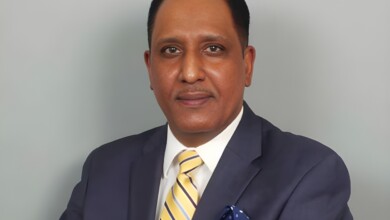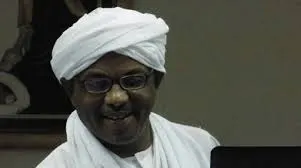The Russian Veto and attempted assassination of Naguib Mahfouz
Fayez Al-Silaek

In 1994, when there were no social media networks, the world’s radio stations were buzzing, people wondered about the motives behind the involvement of defendants in the attempted assassination of the great Egyptian writer Naguib Mahfouz, winner of the Nobel Prize for Literature.
The defendants appeared before the court, and the news of their appearance was a story worthy of a novel, as they aroused astonishment in people, and their story shocked everyone; because those who aimed to assassinate Mahfouz were unable to read or write.
Counselor Ashraf Al-Ashmawy, the judge responsible for investigating the case, said in a television interview: “One of the defendants had difficulty pronouncing Naguib Mahfouz’s name, to the point that he would pronounce his name backwards and say Mahfouz Naguib, meaning that he didn’t know the writer at all.
The religious fanatic groups were investing in climates of ignorance, poverty and unemployment, trading in the absence of intellect, and didn’t hesitate to shed the blood of innocents, to the point of attempting to assassinate a person of the stature of Naguib Mahfouz, by a group that hadn’t read a novel of his, but blindly believed the allegations, were convinced by the interpretation of extremists’ readings of literature, and influenced by the croaking of their miserable fatwas.
In Sudan, the same groups are investing today in ignorance, obscurantism, deception and misleading, as they fail to address the conscious minds, but rather address ambiguous emotions. Therefore, one can await answers if we were to ask a question regarding the reasoning behind welcoming the Russian veto against the British draft resolution on Sudan, did they read the draft resolution? Did they think about its content? What would their opinion be if they discovered that the project calls for holding accountable those involved in war crimes? why would they refuse to hold accountable those involved in the Rapid Support Forces? And are they refusing to establish civilian areas free of weapons to protect millions of victims of violence? Some are quick to state that areas controlled by the Army are safer, but for how long? What if battles broke out? Why flee from residential and work areas in the first place? Will the escape be eternal?
I think, and not all suspicion is a sin, that hundreds of thousands didn’t bother to read about the British draft resolution, and if they did, they failed to understand it, in the manner of “memorizing, but failing to understand.” Did they think about the usefulness of the British draft resolution to the lives of millions of Sudanese in Al-Jazeera? Did they think about the draft urging to lift the siege imposed on the city of El-Fasher? Do they understand Russia’s motives, and why it stood alone, neither Algeria nor China participated in the suspicious position? Was Russia’s stance really in Sudan’s best interest? Or is it a position that came in the interest of continuing the flow of Dushka weapons, Kalashnikovs, and Antonov aircrafts to the battlefields?
Do these people know that both parties to the conflict are using Russian weapons? The very same weapons that were used to kill them? Have they forgotten Moscow’s desire to find a base on the Red Sea? Was Russia not the country receiving the planes of smuggled gold? Was the Sudanese issue not subject to political maneuvers alongside the crisis in Ukraine?
Full of ignorance and arrogance, some might say, “Russia, my sister country.” These people are the embodiment of the French philosopher Gustave Le Bon’s words in his book “The Psychology of Crowds” : (Numerous special characteristics of the masses, such as quick temper, impulsiveness, inability to reason, lack of personal opinion, critical spirit, exaggeration of emotions and feelings, etc., are observed in creatures belonging to lower forms of development).
He adds, (When the authority is illogical, illegitimate, despotic, or pharaonic, then pathological dynamics prevail, such as lying, deception, hypocrisy, passive aggression, and indifference on the part of the masses).
It’s not strange that the “herd mentality” dominates, the mob’s voices rise, the clowning, and the spread of slogans with conscious planning from centers whose mission is to manufacture misinformation, deception, and to deceive the masses.
They often market these poisoned goods in beautiful-looking cellophane papers with signs of dignity and patriotism, but truthfully, they are far from the aforementioned, otherwise why would a simple citizen in Al-Jazeera be led by chants for a Russian veto that would entail spilling rivers of blood, watching its flowing waterfalls.
In times of ignorance and obscurantism; propaganda and misleading information spread, groups that invest in ignorance are active in such climates. Egypt was living one of its eras of obliviousness, ripe with the noise of the mob of extremist religious and Salafi groups, hence, the assassination attempt on Naguib Mahfouz was preceded by the assassination of Farag Foda on June 8th, 1992. The same era witnessed the ruling of Dr. Hamed Nasr Abu Zaid’s apostasy and the enforced separation from his wife because his ideas weren’t understood by closed minded individuals.
Prior to those incidents, was the extremist group’s assassination of former Egyptian President Mohamed Anwar Sadat on October 6th, 1981. After the assassination attempt, Naguib Mahfouz commented, “We are the ones who failed to educate people and change their concepts.” Many are of the opinion that Naguib Mahfouz believed he -as an individual- wasn’t the target of that incident, but the intention was to assassinate him as a cultural symbol, and therefore his death would silence and plant seeds of fear among the intellectuals.
In Sudan, we live in an era similar to that of the Egyptian obliviousness; at a time when social media is widespread and controlled by hordes of idiots, directing scenes on the absurd theater where spaces are filled with the filth of chants, sparks from bellows, and the mourning of hired wailers.
On the other hand, the forces of enlightenment are absent, failing to present their alternative proposals, as the speeches of the civil forces falter, and the few remaining voices are lost amidst the chorus of noise and the rabble. Is there a possibility for a return to the calm and sober thought processes so that the absent awareness can return?





